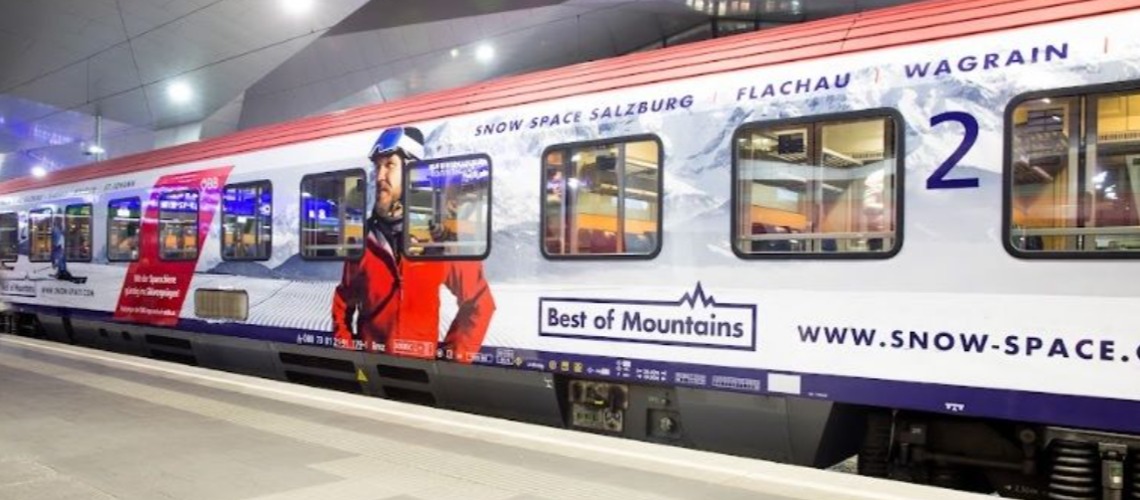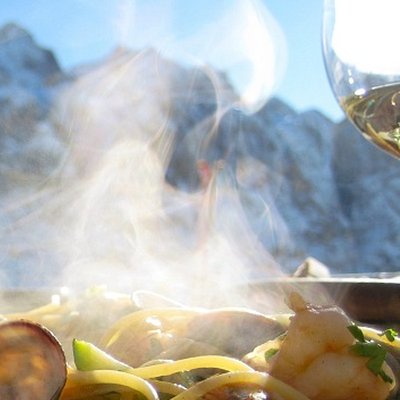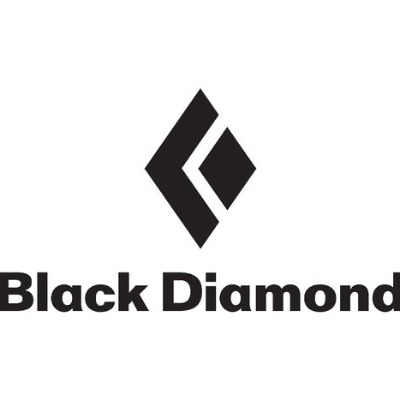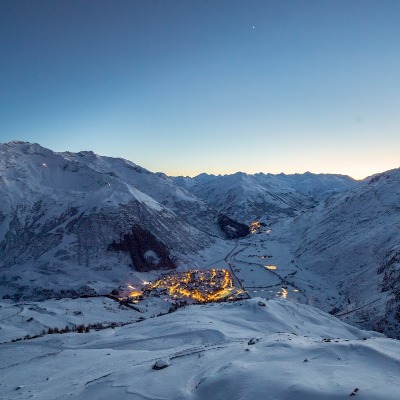Significantly Reduced Co2 Emissions In Snow Space Salzburg

Due to the late Easter, the facilities will be running until April 21st. The start is on November 30th, and the highlights of the season were presented by the two board members Wolfgang Hettegger and Christina König today, Thursday, October 24th, in Salzburg. The managing director of the Salzburg transport association, Johannes Gfrerer, presented the new edition of the "Ruck Zug" campaign, the free journey to the ski area from all over Salzburg.
"Ruck Zug" was developed in 2022/23 by the Snow Space Salzburg Bergbahnen and supported by the state and the Salzburg Transport Association. For the first time, ski enthusiasts from all over the state of Salzburg were able to use the train and other public transport free of charge to get to and from the ski area. Last season, there was an additional advantage: the train was a quick way to get past the traffic jam on the Tauern motorway. The project partner, the Salzburg Transport Association, presented a survey among users. Its managing director, Mag. Johannes Gfrerer, who represented the sick deputy governor Stefan Schnöll, emphasized: "The project has been a milestone since its launch and at the same time an example for other ski areas. We are raising awareness of environmentally friendly travel and fewer emissions. In total, 50 tons of CO2 were avoided in 2023/24 thanks to "Ruck Zug". At the same time, we are making the arrival and departure for ski enthusiasts sustainable and much more relaxed," said Gfrerer.
Survey shows high satisfaction
The frequency of the campaign has more than doubled from 2,000 participants in the 2022/23 season to 4,500 in the 2023/24 season. Direct feedback was now collected from 200 users in a survey.
Here are the results:
- Around 70 percent of users start from the city of Salzburg.
- More than three quarters had previously traveled to the ski area by car.
- Almost half of the passengers used “Ruck Zug” more than twice. Almost 40 percent traveled once, and around 10 percent twice.
- More than two thirds find “Ruck Zug” so good that they would recommend the offer to others.
- The most common motives of users were cost savings and climate protection.
- Half had a season ticket, 30 percent used a day ticket, and 20 percent used a multi-day ticket.
"The success of the Ruck Zug campaign speaks volumes and proves that public transport to the ski area is comfortable and relaxed. I am very pleased that we were able to convince so many people of the advantages of public transport through the campaign. Comfortable, traffic-free and sustainable access to the slopes: what more could you want? At the same time, with the campaign we are of course also supporting all the mountain railways in the Inner Mountains during the challenging construction phase of ASFINAG on the A10," emphasized Gfrerer.
60 percent of CO2 emissions saved.
60 percent of CO2 emissions saved.
Christina König, CEO of Snow Space Salzburg Bergbahnen, noted another environmentally relevant success: the massive reduction in CO2 emissions in her own company with around 430 employees. The total amount of CO2 emitted at the end of the 2023/24 season was 60 percent lower than when the project started in autumn 2019 (4,148 tonnes/1,638 tonnes). This reduction was achieved primarily through the use of HVO (hydrotreated vegetable oils) fuels in the 30 piste machines and in the scheduled ski buses throughout the area. Climate-friendly measures have also been taken to transport employees, for example by purchasing electrically powered minibuses. The 50 cable cars in Snow Space Salzburg emit comparatively little CO2, said König. Only certified green electricity is used there. König emphasized that the company could be a climate-neutral company by the end of the 2025/26 season, i.e. in spring 2026. "We also want to consistently drive forward the greening of the mountain railway business model," explained the board member.
Optimal control of snowmaking: For the first time with the help of artificial intelligence
In order to make the most of further savings potential and use resources sparingly, Snow Space Salzburg is using artificial intelligence in the snowmaking process for the first time. The "Schneeprophet" software helps determine the ideal time for snowmaking and to make the best possible use of natural conditions. In addition to weather and climate data, information from the ski area, such as snow depth measurements, is also used for the forecasts. The mountain railways can use the web platform to access snow data, select specific sections of the slopes and view the development of the snow cover over the next 15 days depending on the snowmaking strategy. Thanks to "Schneeprophet", up to 10 percent of electricity consumption per snow cannon can also be saved.
Season 2024/25: AUDI FIS Ski World Cup Night Slalom and Parachute Ski World Championships
The 2024/25 season is expected to start on November 30th and last until April 21st, exactly 143 days, announced Wolfgang Hettegger. This winter will also bring some sporting highlights. First and foremost, the AUDI FIS Women's Ski World Cup in Flachau on Tuesday, January 14th, 2024, where the slalom aces will compete for the coveted title of Snow Space Salzburg Princess on the Hermann Maier FIS World Cup course under floodlights. The women's night slalom promises not only pure excitement during the two race rounds, but also a colorful supporting program, with Austrian musician Josh keeping the atmosphere going during both rounds this year.
On the evening before the floodlit classic, Hermann Maier is already testing the race track at his Star Challenge. Together with ski legends such as Franz Klammer, he is ensuring a great atmosphere for a good cause with free entry. As was the case last winter, both races can be seen at prime time on ORF1.
From March 13th to 16th, around 80 athletes from 10 nations will compete in the Parachute Ski World Championships in St. Johann/Alpendorf to win the world championship title by skiing and parachuting. Parachute skiing is a combination sport of ski racing and parachute target jumping. The aim is to be as fast as possible in an FIS-regulated ski race, held in two rounds, and as accurate as possible in six parachute jump rounds.
Extra long skiing pleasure in the 2024/25 winter season
As soon as the morning sun allows, the operating times in the premium ski area will be moved forward by half an hour from January 10, 2025, so that the first cable cars in Flachau, Wagrain and St. Johann/Alpendorf will start operating as early as 8:00 a.m. "Early risers can start even earlier on the freshly prepared and empty slopes," recommends Hettegger. This measure also helps to ease the traffic on the A10 Tauern motorway, as the ASFINAG tunnel chain renovation is still underway there.













